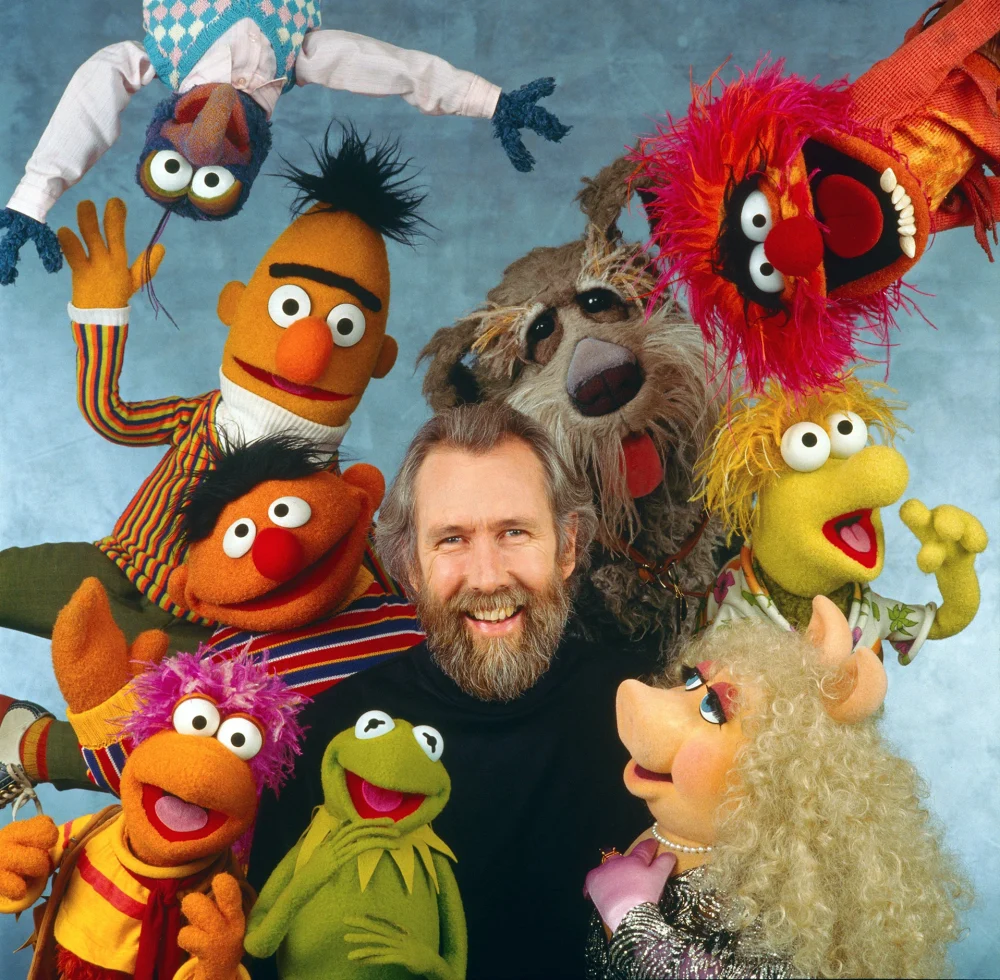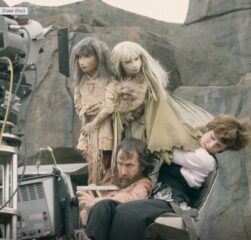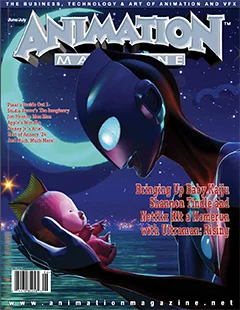|
Getting your Trinity Audio player ready...
|
Jim Henson, the beloved creator of the Muppets and many other TV shows and features, is the subject of a beautifully researched and crafted new documentary directed by Oscar winner Ron Howard and produced by his team at Imagine Documentaries. Titled Jim Henson Idea Man, the 90-minute project offers never-before-seen home movies, archival interviews and a wonderful collection of clips from Henson’s decades of creative magic.

Howard, who has been a longtime fan of Henson, had only met him briefly backstage when they were both guests on a talk show. “My friend George Lucas was a close friend and huge admirer and characterized him as a bona fide genius,” he says during a recent Zoom interview. “Of course, my own relation with Jim Henson’s creations also evolved through my kids and Sesame Street.”
The filmmakers were given full access by the Henson family. “After spending time with the family and looking through the archival footage, the narrative question emerged,” Howard points out. “How in the world did he create such a lasting legacy of work with such a burst of creativity in only a few decades? The dimensions of his output were a complete surprise to me. He was completely in touch with the cultural zeitgeist, and he kept shifting with it — not cynically, but very organically with the kind of creative curiosity that I both admired and related to.”

Puppetry and Perfection
As expected, there was an abundance of archival footage to go through. “Not just great stuff about the Muppets or Sesame Street and old interviews with Jim, but also his personal family footage was creative. He just didn’t cover a birthday party the way the rest of us dads do. He knew he would make a great story out of it, and he would use stop motion or different creative techniques. He was excited by avant-garde and experimental filmmaking. He was creatively ambitious and that is reflected in his work in Sesame Street.”
The documentary features wonderful footage from Henson’s early work, including his clever 1966 short Idea Man (which lends its title to the project), as well as insightful interviews with his children — Brian, Lisa, Cheryl, Heather and John — and such stars as Frank Oz, Rita Moreno and Jennifer Connelly. There’s even a clip from a fascinating, unaired interview with Orson Welles!
“Because the family was on board and sanctioned me getting involved as a director, they were incredibly supportive,” explains Howard. “They are all very creative people, and they grew up in this environment. They were very forthcoming in their interviews about the price of Jim’s creative energy. They’re so proud of and feel privileged to have had him as a dad, but they’re also grown-up people who could now say that some aspects of life were challenging and [talk about] the stress that the work put on their parents’ marriage. So, we were allowed to really get behind the scenes and understand that there are no free lunches, and you pay a price for everything. I thought it was important to understand his emotions, his insecurities about himself, the childhood events that shaped him and the urgency with which he worked and to find him in a lot of ways beyond just the brilliant genius level of creativity.”

Howard mentions that he learned some surprising facts as the result of the research. “I didn’t know that he didn’t really plan to be a puppeteer,” he says. “He was such a child of television and was fascinated by innovations. That led to his use of remote-control puppets, early robotics and then digital effects. He wasn’t a guy who got one good idea and rode it to great success: He kept adapting, exploring and was pushing the boundaries of medium.”
He adds, “It was also quite amazing that he kept failing to sell The Muppet Show because you just assume all he had to do was walk through the door with a couple of puppets and people would just fall over themselves to buy the show. It’s just a reminder that those big, commercial breakthroughs often come from very unexpected places. They happen by adapting formulas in a really innovative ways and just by following the old patterns.”

Another big revelation for Howard was how physically demanding it could be to be a puppeteer, especially when Henson and Frank Oz really pushed the limits of the art form. “There’s a scene where you see him get into an underwater tank to puppeteer Kermit in a bayou scene,” says Howard. “Or how Frank had to get down in a crammed little cellar to put Miss Piggy on a couch for a talk show. I loved every time we could find those shots that looked behind the curtain and just reminded us of what show business is all about and how to create new ways to present something that audiences haven’t seen before and can get absolutely lost in.”
Howard, who himself has been acting since the age of two and starred in favorite TV shows and movies, such as The Andy Griffith Show, American Graffiti and Happy Days, and directed films, such as the Oscar-winning A Brilliant Mind, Apollo 13, Splash and Parenthood, says he has a lot of respect for Henson’s creativity as a stylistic outlier and innovator. “I did relate to loving the work so much that you don’t need a hobby and fighting to try to make your family a part of your life in a way. Jim and his wife, Jane, began as partners and he had a lot of help from her before they started to have kids, and they eventually separated the business from the family. I’ve also had a great partner in my entrepreneurial journey in Brian Grazer as we founded Imagine together and had the rare advantage of this incredible long-term relationship.”
Art of Being Green
In the documentary, Jim’s son, Brian, discusses his father’s philosophy and how he believed in the value of doing good and the interconnectedness of all living things on Earth.
“Jim was really on a quest to understand that connection,” says Howard. “It always seems to come back to something that I really related to, which was this: You can’t know for sure about much of anything except that goodness has value. Even though you can’t know exactly what our cosmic journey is, you can assume that creating positivity and goodness must be a valuable part of that experience.”
Looking ahead, Howard says he hopes the documentary will help audiences appreciate Henson’s lasting legacy. “I would love it if this makes them go back and review all those Muppet Show episodes. That’s time well spent because they’re hilarious. As with any sort of documentary or scripted piece that deals with a life’s journey, I hope it offers some inspiration and some insight. In Jim’s case, it’s really much more a celebration of how to lead a creative life and how to solve problems with openness and an excitement for what’s possible. I hope people take that inspiration from Jim’s life along with just really being blown away by the range and level of his achievements.”
Jim Henson Idea Man is now streaming on Disney+.








 Win a Funko X Lilo & Stitch Prize Pack!
Win a Funko X Lilo & Stitch Prize Pack! 